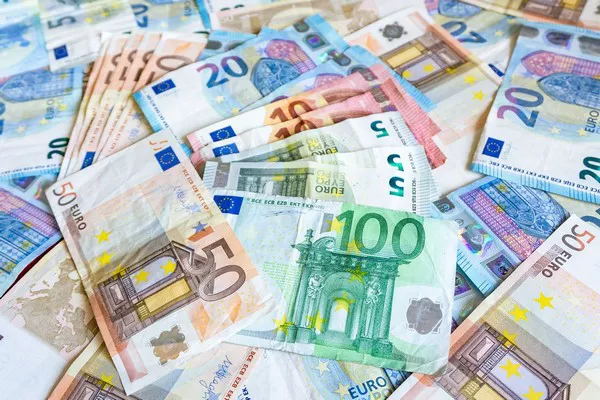The exchange rate between the British pound and the euro has been a topic of interest for many businesses and individuals. The relative strength of these two currencies can have significant impacts on trade, investment, and travel between the UK and countries in the Eurozone. In this article, we will explore some of the factors that may influence the exchange rate between the pound and the euro and attempt to answer the question: will the pound strengthen against the euro?
Macroeconomic factors
Macroeconomic factors such as GDP growth, inflation rates, and interest rates can all impact currency exchange rates. In the UK, GDP growth has been relatively strong in recent years, averaging around 1.5% per year from 2017-2020. However, the COVID-19 pandemic has had a significant impact on the UK economy, with GDP contracting by 9.8% in 2020. The UK government has implemented a range of fiscal and monetary policies to support the economy during this time, including low-interest rates and quantitative easing.
In the Eurozone, GDP growth has also been relatively strong in recent years, averaging around 1.4% per year from 2017-2019. However, the pandemic has also had a significant impact on the Eurozone economy, with GDP contracting by 6.6% in 2020. The European Central Bank (ECB) has implemented a range of fiscal and monetary policies to support the economy, including low-interest rates and a bond-buying program.
Inflation rates in the UK and Eurozone have been relatively stable in recent years, with both economies experiencing inflation rates around 1-2%. Interest rates in the UK have been historically low since the 2008 financial crisis, and the Bank of England has maintained its base interest rate at 0.1% since March 2020. In the Eurozone, interest rates have also been historically low, with the ECB maintaining its deposit rate at -0.5% since September 2019.
Political factors
Political factors can also impact currency exchange rates. Brexit has been a significant political event that has influenced the pound’s exchange rate against the euro and other currencies. The UK officially left the European Union on January 31, 2020, and a transition period ended on December 31, 2020. Since then, the UK and EU have been negotiating a trade deal that has had significant impacts on the pound’s value. In December 2020, a trade deal was agreed upon, which provided some certainty for businesses and investors. However, ongoing issues such as the Northern Ireland protocol and disagreements over financial services regulations could continue to impact the pound’s value in the future.
Other political events could also impact the pound’s value against the euro. For example, elections, changes in government policy, and geopolitical tensions can all have significant impacts on currency exchange rates.
Market sentiment
Market sentiment can also influence currency exchange rates. Investor confidence in the UK and Eurozone economies can impact the demand for these currencies, which can impact their value. For example, if investors are optimistic about the UK economy’s prospects, they may be more likely to invest in British assets, which can increase the demand for pounds and strengthen the currency’s value. Conversely, if investors are pessimistic about the UK economy’s prospects, they may be less likely to invest in British assets, which can decrease the demand for pounds and weaken the currency’s value.
Similarly, investor sentiment towards the Eurozone economy can also impact the demand for euros. For example, concerns over the Eurozone’s debt crisis or political instability can decrease the demand for euros and weaken the currency’s value.
Conclusion
Overall, predicting the future exchange rate between the pound and the euro is challenging, and there are many factors to consider. Macroeconomic factors such as GDP growth, inflation rates, and interest rates can all impact currency exchange rates, as can political events and market sentiment. However, it is worth noting that exchange rates are notoriously difficult to predict, and many unexpected events could impact the pound’s value against the euro.
That said, it is reasonable to expect that ongoing issues related to Brexit could continue to impact the pound’s value in the short term. However, the longer-term outlook for the pound will depend on a range of factors, including the UK’s economic recovery from the pandemic and the outcome of ongoing trade negotiations with the EU and other countries.
In conclusion, while it is challenging to predict the future exchange rate between the pound and the euro, businesses and individuals should stay informed about the latest economic and political developments that could impact these currencies’ values. By staying up-to-date with the latest news and trends, it is possible to make more informed decisions about trade, investment, and travel between the UK and Eurozone countries.


